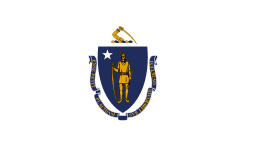William Appleton (politician)
| William Appleton | |
|---|---|
 | |
| Member of the U.S. House of Representatives from Massachusetts's 5th district | |
|
In office March 4, 1853 – March 3, 1855 | |
| Preceded by | Charles Allen |
| Succeeded by | Anson Burlingame |
|
In office March 4, 1861 – September 27, 1861 | |
| Preceded by | Anson Burlingame |
| Succeeded by | Samuel Hooper |
| Member of the U.S. House of Representatives from Massachusetts's 1st district | |
|
In office March 4, 1851 – March 3, 1853 | |
| Preceded by | Samuel Atkins Eliot |
| Succeeded by | Zeno Scudder |
| Personal details | |
| Born |
November 16, 1786 Brookfield, Massachusetts, U.S. |
| Died |
February 15, 1862 (aged 75) Longwood, Massachusetts, U.S. |
| Political party |
Whig Constitutional Union |
| Spouse(s) | Mary Ann Appleton |
| Profession | Politician, Banker, Merchant |
William Appleton (November 16, 1786 – February 15, 1862) was an American businessman and politician from Massachusetts. He was a trader, shipowner, and banker, and served as a U.S. Representative from Massachusetts from 1851 to 1855, and again from 1861 to 1862.
Biography
He was born in Brookfield, Massachusetts, the son of a minister, the Reverend Joseph Appleton, who died when he was nine.[1] He attended schools in New Ipswich, New Hampshire, Francestown, New Hampshire, and Tyngsborough, Massachusetts.[2] At fifteen years of age he started work at a country store in Temple, New Hampshire. Three years later the owner took him into partnership, but a year after that he moved to Boston, Massachusetts.[1]
He worked for a store that bought and sold goods from the West Indies, and went into business for himself in 1807. In 1809, he bought a ship, and made several profitable trading voyages to Europe. After the War of 1812, he expanded his shipping business and became one of the wealthiest men in Boston.[1] In 1826, he retired from business, but maintained a counting-house.[3] In 1832, he became president of the Boston branch of the Second Bank of the United States, and served until 1836. He was also at one time president of the Provident Institution for Savings.
In 1841, he established William Appleton and Company in partnership with his son James and Samuel Hooper to conduct shipping and trading operations. They engaged in the California hide trade, and in commerce with China. He retired from the company in 1859.[1]
He was noted for benevolence toward public causes: he was president of Massachusetts General Hospital, to which he donated $30,000, and made other large donations.
Political career
In 1850, Appleton was elected U.S. Representative from Massachusetts's 1st district as a Whig. He was re-elected in 1852, this time from Massachusetts's 5th district, as districts had been redrawn after the 1850 Census. He was defeated for re-election in 1854, and lost again in 1856.
In 1860, he was again elected Representative, as a Constitutional Unionist. He took his seat in 1861, but resigned in September, due to failing health.[2]
Appleton died five months after his resignation, on February 15, 1862, in Longwood, Massachusetts. He was interred in Mount Auburn Cemetery in Cambridge, Massachusetts.
Personal life
His diaries were published in 1922 entitled Selections from the diaries of William Appleton, 1786-1862. Appleton was the first cousin of U.S. Representative Nathan Appleton, and first cousin, once removed, of writer and artist Thomas Gold Appleton.
References
- 1 2 3 4 Robbins, Chandler (1863) Memoir of Hon. William Appleton
- 1 2 United States Congress. "William Appleton (id: A000270)". Biographical Directory of the United States Congress.
- ↑ Baker Library, Harvard Business School, Notes on William Appleton and Company records
External links
- United States Congress. "William Appleton (id: A000270)". Biographical Directory of the United States Congress.
 "Appleton, William". Appletons' Cyclopædia of American Biography. 1900.
"Appleton, William". Appletons' Cyclopædia of American Biography. 1900.- William Appleton at Find A Grave
- William Appleton & Company Records at Baker Library Historical Collections, Harvard Business School.
| United States House of Representatives | ||
|---|---|---|
| Preceded by Samuel A. Eliot |
Member of the U.S. House of Representatives from Massachusetts's 1st congressional district March 4, 1851 – March 3, 1853 |
Succeeded by Zeno Scudder |
| Preceded by Charles Allen |
Member of the U.S. House of Representatives from Massachusetts's 5th congressional district March 4, 1853 – March 3, 1855 |
Succeeded by Anson Burlingame |
| Preceded by Anson Burlingame |
Member of the U.S. House of Representatives from Massachusetts's 5th congressional district March 4, 1861 – September 27, 1861 |
Succeeded by Samuel Hooper |

